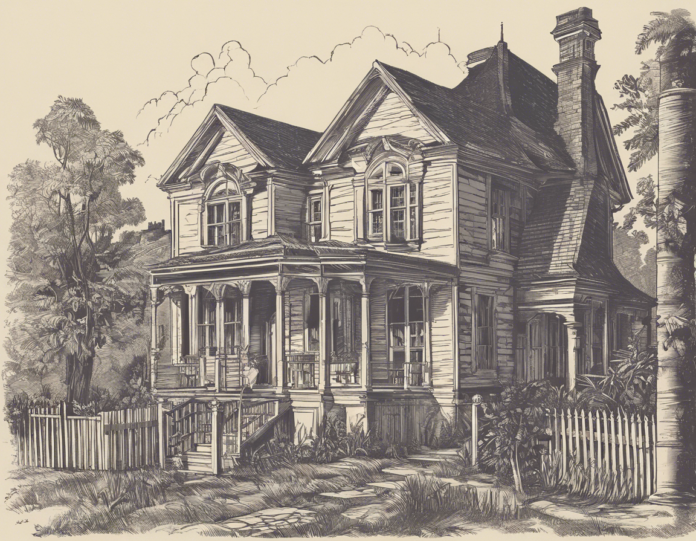Exploring the Right to Property as a Fundamental Aspect of Ownership
Understanding the Concept of Property Rights
Property rights are a cornerstone of modern society, providing individuals with the legal framework to own, use, and transfer property as they see fit. These rights are crucial for fostering economic growth, encouraging investment, and promoting social stability. Property can take many forms, including real estate, personal possessions, intellectual property, and more. The right to property is enshrined in various legal systems around the world, often as a fundamental human right.
The Significance of Property Rights
Property rights play a crucial role in the functioning of a market economy. Clear and secure property rights provide individuals with the confidence to invest in and develop their assets. This, in turn, leads to increased economic activity, job creation, and overall prosperity. Additionally, property rights help prevent disputes and conflicts over ownership, providing a legal mechanism for resolving disagreements.
Historical Development of Property Rights
The concept of property rights has evolved over centuries, reflecting changing social norms, economic systems, and legal frameworks. In many ancient societies, property rights were often tied to land ownership, with rights typically reserved for the ruling elite. Over time, property rights expanded to include personal possessions and intellectual property, reflecting the broader scope of human creativity and innovation.
Legal Protection of Property Rights
In modern legal systems, property rights are typically protected through a combination of constitutional provisions, statutory laws, and judicial decisions. These legal protections establish the parameters within which individuals can own, use, and transfer property. They also provide remedies for individuals whose property rights have been violated, such as through theft, trespass, or eminent domain.
The Role of Governments in Protecting Property Rights
Governments play a critical role in safeguarding property rights and ensuring their enforcement. This can involve passing laws to clarify property rights, establishing mechanisms for registering and recording property ownership, and creating judicial systems to adjudicate property disputes. Additionally, governments may use their power of eminent domain to expropriate private property for public use, usually with fair compensation to the owner.
Challenges to Property Rights
Despite their importance, property rights can face challenges and threats in various forms. These may include government expropriation without adequate compensation, infringement by third parties, or lack of legal clarity over property boundaries. In some cases, property rights may clash with other societal values, such as environmental protection or social equity.
Protecting Property Rights in the Digital Age
With the rise of the digital economy, new challenges have emerged concerning intellectual property rights and online assets. Protecting digital property, such as copyrights, patents, and digital currencies, requires innovative legal solutions and robust cybersecurity measures. Ensuring the security and integrity of digital property is essential for fostering trust and confidence in online transactions.
Conclusion
In conclusion, property rights are a fundamental aspect of ownership that underpins economic development, social stability, and individual freedom. By providing individuals with the legal certainty to own and use property, societies can unleash human potential, spur innovation, and create wealth. Safeguarding property rights requires a robust legal framework, effective governance, and a commitment to upholding the rule of law. Only by protecting property rights can societies ensure that the right to property remains a cornerstone of prosperity and progress.
Frequently Asked Questions (FAQs)
-
What are property rights?
Property rights are legal rights that allow individuals to own, use, and transfer property. -
Why are property rights important?
Property rights are crucial for fostering economic growth, encouraging investment, and promoting social stability. -
How are property rights protected?
Property rights are protected through constitutional provisions, statutory laws, and judicial decisions. -
Can property rights be infringed?
Property rights can face challenges such as government expropriation, third-party infringement, or lack of legal clarity. -
Are property rights relevant in the digital age?
Yes, property rights extend to digital assets such as copyrights, patents, and online currencies, requiring innovative legal solutions. -
What role do governments play in protecting property rights?
Governments play a critical role in safeguarding property rights through legal frameworks, registration systems, and dispute resolution mechanisms. -
How do property rights contribute to social stability?
By providing individuals with ownership rights, property rights help prevent disputes, promote economic development, and create a foundation for social cohesion. -
What are the historical origins of property rights?
Property rights have evolved over centuries, initially tied to land ownership and gradually expanding to include personal possessions and intellectual property. -
Do property rights vary across different legal systems?
Yes, property rights can vary in scope and application across different countries and legal traditions, reflecting diverse societal norms and values. -
How can individuals protect their property rights?
Individuals can protect their property rights by maintaining clear records of ownership, seeking legal advice when necessary, and advocating for strong legal protections.

